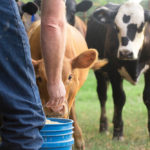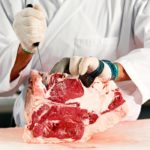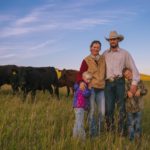
Challenging times bring opportunities to connect with customers
A young beef producer shares how her family is finding opportunities for business and consumer engagement during the COVID-19 crisis.

Crown land changes create uncertainty for Manitoba’s beef producers
New regulations for Manitoba’s Agricultural Crown Lands lease program caught lease-holders off guard, leaving many unsure about the future of their operations

Study finds link between mental health and business management practices
While a small percentage of producers surveyed use a business plan, the majority of those report less stress as a result

More mental health awareness, training needed in difficult times
Advocates of mental health awareness in agriculture discuss warning signs, the best way to help someone and the training that can make a difference in rural communities

More small processors needed to fulfill promise of local food movement
While beef producers who market directly to customers are seeing a surge in demand, smaller processors are overwhelmed.

Lidocaine shows promise in mitigating castration pain
Two ongoing projects highlight the potential of using this anaesthetic during processing

Tips for marketing beef directly to customers
Rachel Herbert of Trail's End Beef shares what she's learned from direct marketing beef over the years.

Direct-marketing beef during a pandemic
As COVID-19 threatened Canada's beef supply chain, Trail's End Beef saw a surge in demand like never before.

Market research reveals opportunity to educate U.S. beef consumers
Building on the public’s trust in farmers and ranchers key to communicating humane treatment of animals and increasing consumer confidence

Conservation organization calls for support for beef producers during pandemic
Beef industry and its allies need to find opportunities to raise public support for Canada’s food production system



